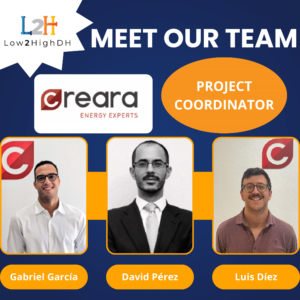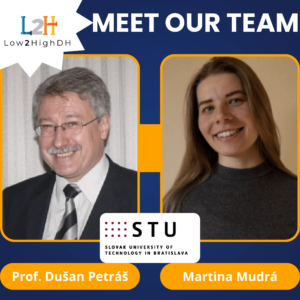Partners
Creara: is a Spanish company that offers specialised consulting and engineering services in energy efficiency, renewable energy, and energy retailing. It has fifteen years of experience, analysing regulatory and policy frameworks related to renewable energy technologies and energy efficiency. As part of similar past projects, CREARA has gained deep knowledge on how to develop methodologies for strategic planning and feasibility studies for heating systems in buildings. For that reason, it will be the Coordinator of the entire project, leading also key tasks such as the selection of the most relevant investment plans’ beneficiaries, the establishment of local stakeholder communities, the creation of prefeasibility studies, the development of partnerships and synergies, and the replication
strategy of the project. Strategic consultants from CREARA will help for the implementation of these tasks.
EP – Europroject is а consulting company supporting technological and methodological innovation within all organisations active in R&D (SMEs, industries, research centers, NGOs, universities, and public entities). EP has become а visible аnd recognized innovаtion support partner in South Eаstern Europe. The company provides support for project setting up and management, expertise, and training in dissemination and exploitation, IPR, business planning, and innovation management, all of which are crucial cornerstones of cutting-edge EU projects. Its web development and graphic design team аre experts in the design аnd development of complex websites and platforms designed in accordance with EU and international standards, including web accessibility.
Role in the project: In the Low2HighDH project, EP leads WP5: Communication, Dissemination & Cross-EU Synergies and provides active support to the project coordinator in WP1: Project Management.
KAPE – The National Energy Conservation Agency S.A. (KAPE) is a consulting company in Poland and has been in the business since 1994. The company promotes and implements European standards and practices in the field of Energy efficiency and proper energy management. Their goal is to improve the competitiveness of the Polish economy by indicating the optimal use of natural resources based on the principles of sustainable development.
KAPE is a consulting company and offers the following services:
– provides comprehensive and independent advice in the scope of optimising production and energy consumption, performs audits in industrial plants and helps implement decarbonization strategies
– designs energy-efficient buildings and carries out audits in the construction industry,
– helps raising funding for the implementation of investments from foreign and domestic funds,
– offers a wide range of services for Local Government Units related to the introduction of a low-carbon economy,
– provides professional energy expertise for the needs of enterprises, state and local administration, non-governmental institutions and higher education,
KAPE carries out national and European informational and educational projects concerning broadly understood energy efficiency and RES (Renewable Energy Sources). Their partners in the European projects include well-known agencies, universities and research institutes across Europe.
In the project KAPE will aid with the market, technical and financial assessment, the selection process for participants in Poland, the financial and investment planning, the establishment of a stakeholder community in the country, and the creation of prefeasibility studies.
GNE – GNE Finance is an investment, financing, and advisory boutique with a core focus on positive impact. Our mission is to mobilize integrated financial solutions, driving the energy transition and promoting decarbonization of our economies. Uniquely positioned, our value proposition integrates finance and services to facilitate energy efficiency and green energy projects. GNE Finance supports cities and regions in their transition towards a clean and low carbon economy, contributing to the creation of resilient and vibrant communities that enjoy economic growth and a healthy environment. Through robust collaboration between the public and private sectors, our aim is to deploy highly effective solutions for sustainable development.
GNE will lead WP4, which aims to build on the technical information developed in the previous package and try for it to translate into an
investment plan with a set of next steps that could bring the project to fruition already defined. To do so, the following
activities will be carried out:
- Participant training in modelling tools (THERMOS) to check the technical and economic feasibility of the envisioned
project.
- Support the selection of the financial solution and development of a financial plan that allows to complete the
investment plan.
- Aid in the definition and setup of a set of next steps.
UNIGE – The University of Genoa, known also with the acronym UNIGE (Italian: Università di Genova), is one of the largest universities in Italy. It is located in the city of Genoa and regional Metropolitan City of Genoa, on the Italian Riviera in the Liguria region of northwestern Italy. The early university was founded in 1481.
UNIGE is a public high education university upholding the value of culture as an instrument of peace, a universal language for building bridges between peoples and promoting dialogue and growth, and providing development of third-level education training and research.
UNIGE has strong participation in European, national, and international research and cooperation programmes, incl. LIFE, FP6, FP7 and Horizon Europe projects and more. The university’s Division of Thermal and Energy Systems will support the analysis of thermal systems for each location by developing ad-hoc calculation model approaches. UNIGE will also assist the monitoring and evaluation of the specific project’s KPIs, as well as for assessing the overall environmental, social, and economic impacts of the project. The university will also support the development of the afterLIFE Conservation Plan, along with inputs from the other consortium partners. Lastly, it will participate in the capacity building and dissemination activities leveraging on extensive previous project experiences.
LEI – Established in 1956, Lietuvos energetikos institutas (in English – Lithuanian Energy Institute, LEI) is a state technical research centre dealing with energy-related research in mathematical modelling of power systems and networks, investigation of their control issues; energy economics, socio-economic analysis; modelling and optimisation research of ICT-based control systems of power systems; renewable energy, analysis of the security of energy supply, development of energy planning methods, fuel cells and hydrogen, thermal physics and fluid mechanics, nuclear safety, structural integrity assessment of components and structures, simulation of complex energy systems. LEI has 240 employees (as of December 2023). Among them are 110 Ph.D.s, 30 researchers with B.Sc. and M.Sc., and 40 Ph.D. Candidates.
The mission of LEI is to conduct research and develop innovative technologies in the fields of energy, thermal engineering, environmental engineering, measurement engineering, materials science and economics, to carry out fundamental and applied research, to participate in study processes, to transfer the results of applied research and innovations to industry, to advise the state, the government, public, private institutions, and companies on issues related to the development of sustainable energy in Lithuania, to cooperate actively with higher education institutions in the preparation of specialists for the Lithuanian society.
LEI has a long-lasting experience in:
• modelling energy systems, including, amongst others, different aspects/technologies such as energy security, economic implications, CHP, energy storage, nuclear, intermittent energy sources (wind, solar, geothermal, etc.), system reserves (primary, secondary, tertiary) and competition between different uses of land (competition food/energy);
• socio-economic impact assessments and cost-benefit analyses;
• reliability/vulnerability assessment of energy production and supply;
• assessment of the competitive environment in the district heating systems (DHs) of the cities producing energy (heat) sources;
• development of smart power generation demos for urban neighbourhoods or buildings;
• the development of a model of a building and groups of buildings as prosumers;
• experimental modelling of next-generation thermal energy storage for building heating and domestic
• evaluation/development of financing models for building renovation.
Lithuanian Energy Institute is a leading partner of Lithuanian Green Municipalities National Network https://greenmunicipalities.lt/.
Role in the project: In the Low2HighDH project, LEI leads WP3: Beneficiaries and support scope definition. The institute will also oversee the initiation of the investment plans implementation in the country.
STUBA – The Slovak University of Technology in Bratislava (STU) is a modern educational and scientific institution. Since its foundation in the year 1937 more than 159.000 students have graduated. STU is a public university and offers education in engineering disciplines using modern methods of education, laboratories, and practical training. Our faculties, departments, institutes, and experts cooperate directly with industrial companies and social organisations, actively taking part in international cooperation. The University offers three types of degree: Bachelor’s, Master’s and Doctoral. STU also offers lifelong learning programmes and an MBA programme in cooperation with TU Wien.
STU will participate in all working packages of the Low2HighDH project, including providing information on district heating systems in Slovakia, creating feasibility studies on the application of renewable energy sources in district heating networks, preparing training webinars, and training participants in the methodology developed as it will have the leading role in training the participants in the capacity building methodology, so that they are able to conduct their investment plan activities.
UNIP – Parthenope University of Naples was established in 1919 by the Vice Admiral Leonardi Cattolica with the name “Regio Istituto Superiore Navale”. Born as an institute of higher education specialized in maritime studies: marine science, maritime economics and logistics. In 1999, the departments of Law, Engineering and Sports Sciences were added to the two long-standing ones of Economics and Nautical Science which jointly brought the Institute significant growth in the number of students. Then, the name of the Institute officially changed to “Parthenope University of Naples”. From July 2013, a new set of study curricula was introduced and also a department-based organization for research. University is committed to the pursuit of social, cultural and economic development.
UNIPARTHENOPE will coordinate WP2 of the Low2HighDH project by taking care of the market assessment of the integration of low-grade renewables in district heating network. A set of solutions and analytical methodologies will be proposed as result of the WP.

Creara: is a Spanish company that offers specialised consulting and engineering services in energy efficiency, renewable energy, and energy retailing. It has fifteen years of experience, analysing regulatory and policy frameworks related to renewable energy technologies and energy efficiency. As part of similar past projects, CREARA has gained deep knowledge on how to develop methodologies for strategic planning and feasibility studies for heating systems in buildings. For that reason, it will be the Coordinator of the entire project, leading also key tasks such as the selection of the most relevant investment plans’ beneficiaries, the establishment of local stakeholder communities, the creation of prefeasibility studies, the development of partnerships and synergies, and the replication
strategy of the project. Strategic consultants from CREARA will help for the implementation of these tasks.

EP – Europroject is а consulting company supporting technological and methodological innovation within all organisations active in R&D (SMEs, industries, research centers, NGOs, universities, and public entities). EP has become а visible аnd recognized innovаtion support partner in South Eаstern Europe. The company provides support for project setting up and management, expertise, and training in dissemination and exploitation, IPR, business planning, and innovation management, all of which are crucial cornerstones of cutting-edge EU projects. Its web development and graphic design team аre experts in the design аnd development of complex websites and platforms designed in accordance with EU and international standards, including web accessibility.
Role in the project: In the Low2HighDH project, EP leads WP5: Communication, Dissemination & Cross-EU Synergies and provides active support to the project coordinator in WP1: Project Management.

KAPE – The National Energy Conservation Agency S.A. (KAPE) is a consulting company in Poland and has been in the business since 1994. The company promotes and implements European standards and practices in the field of Energy efficiency and proper energy management. Their goal is to improve the competitiveness of the Polish economy by indicating the optimal use of natural resources based on the principles of sustainable development.
KAPE is a consulting company and offers the following services:
– provides comprehensive and independent advice in the scope of optimising production and energy consumption, performs audits in industrial plants and helps implement decarbonization strategies
– designs energy-efficient buildings and carries out audits in the construction industry,
– helps raising funding for the implementation of investments from foreign and domestic funds,
– offers a wide range of services for Local Government Units related to the introduction of a low-carbon economy,
– provides professional energy expertise for the needs of enterprises, state and local administration, non-governmental institutions and higher education,
KAPE carries out national and European informational and educational projects concerning broadly understood energy efficiency and RES (Renewable Energy Sources). Their partners in the European projects include well-known agencies, universities and research institutes across Europe.
In the project KAPE will aid with the market, technical and financial assessment, the selection process for participants in Poland, the financial and investment planning, the establishment of a stakeholder community in the country, and the creation of prefeasibility studies.

GNE – GNE Finance is an investment, financing, and advisory boutique with a core focus on positive impact. Our mission is to mobilize integrated financial solutions, driving the energy transition and promoting decarbonization of our economies. Uniquely positioned, our value proposition integrates finance and services to facilitate energy efficiency and green energy projects. GNE Finance supports cities and regions in their transition towards a clean and low carbon economy, contributing to the creation of resilient and vibrant communities that enjoy economic growth and a healthy environment. Through robust collaboration between the public and private sectors, our aim is to deploy highly effective solutions for sustainable development.
GNE will lead WP4, which aims to build on the technical information developed in the previous package and try for it to translate into an
investment plan with a set of next steps that could bring the project to fruition already defined. To do so, the following
activities will be carried out:
- Participant training in modelling tools (THERMOS) to check the technical and economic feasibility of the envisioned
project.
- Support the selection of the financial solution and development of a financial plan that allows to complete the
investment plan.
- Aid in the definition and setup of a set of next steps.
UNIGE – The University of Genoa, known also with the acronym UNIGE (Italian: Università di Genova), is one of the largest universities in Italy. It is located in the city of Genoa and regional Metropolitan City of Genoa, on the Italian Riviera in the Liguria region of northwestern Italy. The early university was founded in 1481.
UNIGE is a public high education university upholding the value of culture as an instrument of peace, a universal language for building bridges between peoples and promoting dialogue and growth, and providing development of third-level education training and research.
UNIGE has strong participation in European, national, and international research and cooperation programmes, incl. LIFE, FP6, FP7 and Horizon Europe projects and more. The university’s Division of Thermal and Energy Systems will support the analysis of thermal systems for each location by developing ad-hoc calculation model approaches. UNIGE will also assist the monitoring and evaluation of the specific project’s KPIs, as well as for assessing the overall environmental, social, and economic impacts of the project. The university will also support the development of the afterLIFE Conservation Plan, along with inputs from the other consortium partners. Lastly, it will participate in the capacity building and dissemination activities leveraging on extensive previous project experiences.

LEI – Established in 1956, Lietuvos energetikos institutas (in English – Lithuanian Energy Institute, LEI) is a state technical research centre dealing with energy-related research in mathematical modelling of power systems and networks, investigation of their control issues; energy economics, socio-economic analysis; modelling and optimisation research of ICT-based control systems of power systems; renewable energy, analysis of the security of energy supply, development of energy planning methods, fuel cells and hydrogen, thermal physics and fluid mechanics, nuclear safety, structural integrity assessment of components and structures, simulation of complex energy systems. LEI has 240 employees (as of December 2023). Among them are 110 Ph.D.s, 30 researchers with B.Sc. and M.Sc., and 40 Ph.D. Candidates.
The mission of LEI is to conduct research and develop innovative technologies in the fields of energy, thermal engineering, environmental engineering, measurement engineering, materials science and economics, to carry out fundamental and applied research, to participate in study processes, to transfer the results of applied research and innovations to industry, to advise the state, the government, public, private institutions, and companies on issues related to the development of sustainable energy in Lithuania, to cooperate actively with higher education institutions in the preparation of specialists for the Lithuanian society.
LEI has a long-lasting experience in:
• modelling energy systems, including, amongst others, different aspects/technologies such as energy security, economic implications, CHP, energy storage, nuclear, intermittent energy sources (wind, solar, geothermal, etc.), system reserves (primary, secondary, tertiary) and competition between different uses of land (competition food/energy);
• socio-economic impact assessments and cost-benefit analyses;
• reliability/vulnerability assessment of energy production and supply;
• assessment of the competitive environment in the district heating systems (DHs) of the cities producing energy (heat) sources;
• development of smart power generation demos for urban neighbourhoods or buildings;
• the development of a model of a building and groups of buildings as prosumers;
• experimental modelling of next-generation thermal energy storage for building heating and domestic
• evaluation/development of financing models for building renovation.
Lithuanian Energy Institute is a leading partner of Lithuanian Green Municipalities National Network https://greenmunicipalities.lt/.
Role in the project: In the Low2HighDH project, LEI leads WP3: Beneficiaries and support scope definition. The institute will also oversee the initiation of the investment plans implementation in the country.

STUBA – The Slovak University of Technology in Bratislava (STU) is a modern educational and scientific institution. Since its foundation in the year 1937 more than 159.000 students have graduated. STU is a public university and offers education in engineering disciplines using modern methods of education, laboratories, and practical training. Our faculties, departments, institutes, and experts cooperate directly with industrial companies and social organisations, actively taking part in international cooperation. The University offers three types of degree: Bachelor’s, Master’s and Doctoral. STU also offers lifelong learning programmes and an MBA programme in cooperation with TU Wien.
STU will participate in all working packages of the Low2HighDH project, including providing information on district heating systems in Slovakia, creating feasibility studies on the application of renewable energy sources in district heating networks, preparing training webinars, and training participants in the methodology developed as it will have the leading role in training the participants in the capacity building methodology, so that they are able to conduct their investment plan activities.
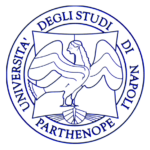
UNIP – Parthenope University of Naples was established in 1919 by the Vice Admiral Leonardi Cattolica with the name “Regio Istituto Superiore Navale”. Born as an institute of higher education specialized in maritime studies: marine science, maritime economics and logistics. In 1999, the departments of Law, Engineering and Sports Sciences were added to the two long-standing ones of Economics and Nautical Science which jointly brought the Institute significant growth in the number of students. Then, the name of the Institute officially changed to “Parthenope University of Naples”. From July 2013, a new set of study curricula was introduced and also a department-based organization for research. University is committed to the pursuit of social, cultural and economic development.
UNIPARTHENOPE will coordinate WP2 of the Low2HighDH project by taking care of the market assessment of the integration of low-grade renewables in district heating network. A set of solutions and analytical methodologies will be proposed as result of the WP.
Copyright © 2024 Europroject
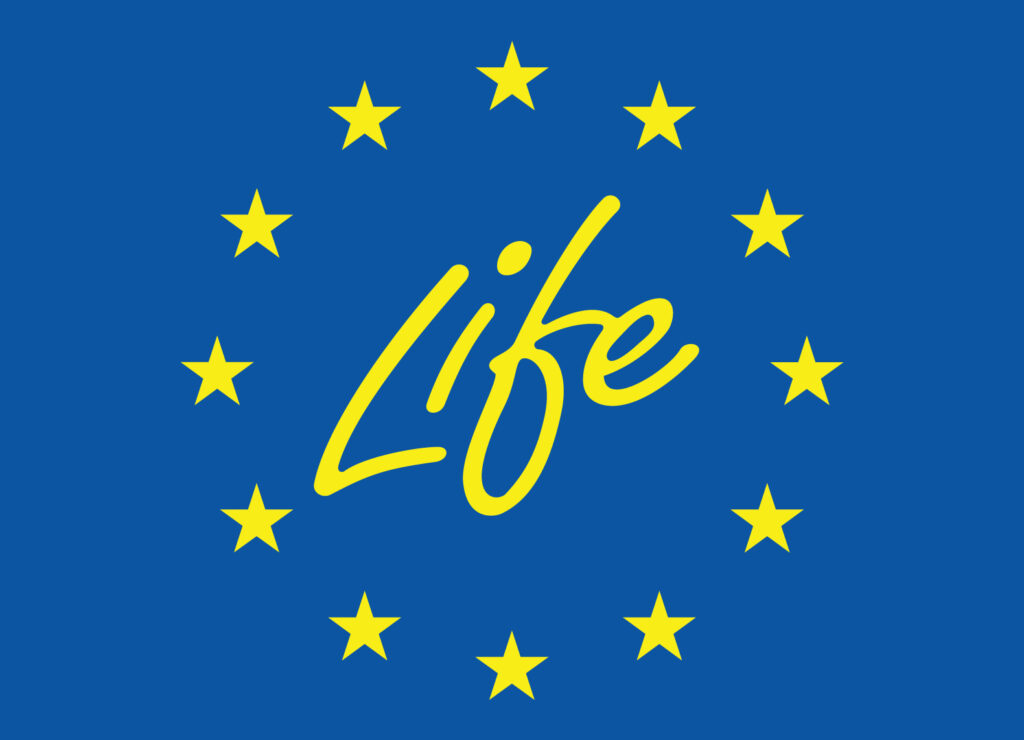
Co-funded by the European Union. Views and opinions expressed are however those of the author(s) only and do not necessarily reflect those of the European Union or CINEA. Neither the European Union nor the granting authority can be held responsible for them.Co-funded by the European Union. Views and opinions expressed are however those of the author(s) only and do not necessarily reflect those of the European Union or CINEA.
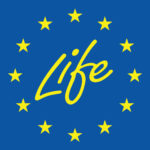
Co-funded by the European Union. Views and opinions expressed are however those of the author(s) only and do not necessarily reflect those of the European Union or CINEA. Neither the European Union nor the granting authority can be held responsible for them.Co-funded by the European Union. Views and opinions expressed are however those of the author(s) only and do not necessarily reflect those of the European Union or CINEA.
